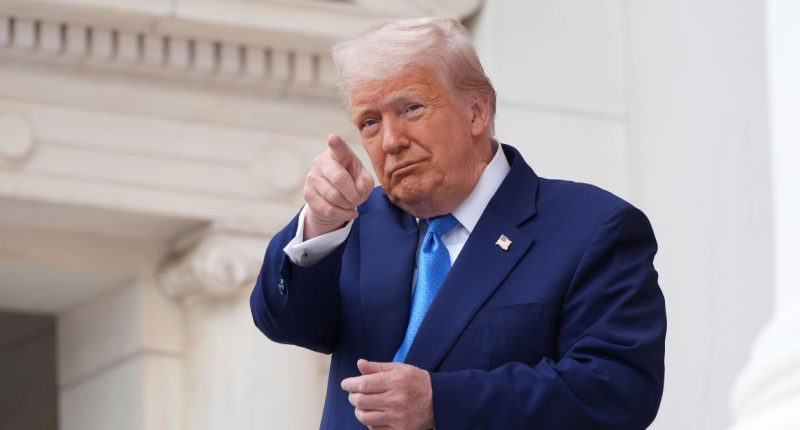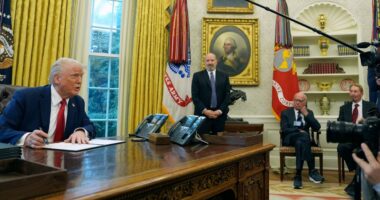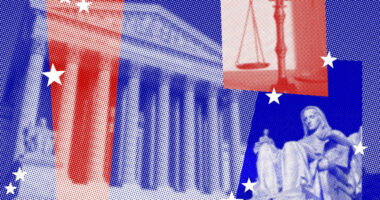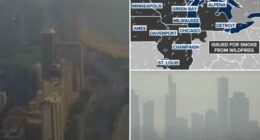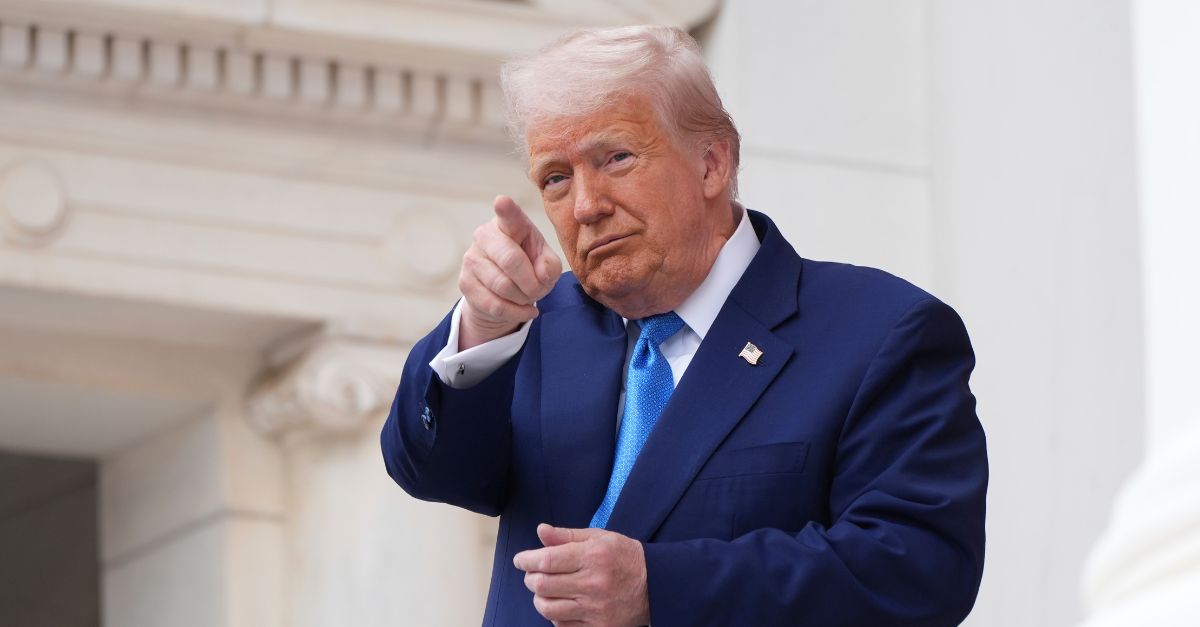
President Donald Trump attends the 157th National Memorial Day Observance at Arlington National Cemetery, Monday, May 26, 2025, in Arlington, Va. (AP Photo/Jacquelyn Martin).
The Trump administration may find a receptive audience as it argues against a lower court order curtailing its international tariffs regime.
On Saturday, the U.S. Court of Appeals for the District of Columbia Circuit took up the case stylized as Learning Resources, Inc. v. Trump.
In typical fashion, the case was assigned to a three-judge panel.
Somewhat atypically, the random selection process returned a panel made up entirely of judges who were appointed by President Donald Trump during his first term in office. Hearing the appeal will be U.S. Circuit Judges Gregory G. Katsas, Neomi Rao, and Justin R. Walker, according to a Monday order.
Love true crime? Sign up for our newsletter, The Law&Crime Docket, to get the latest real-life crime stories delivered right to your inbox.
Many reactions on X offered speculation the panel was somehow not randomized — a corollary to pro-Trump partisans offering their own voluble grumbling about a judge they view as unfriendly overseeing high-profile cases.
One legal expert took a different tack.
“So for a brief period, the DC Circuit’s orders are likely to align with SCOTUS,” Case Western Reserve University Law Professor Jonathan H. Adler mused on the social media website.
In late April, two family-owned business based in Illinois which “develop, market, and sell educational products, educational toys, and pet toys” sued the government over the global tariff regime announced in early April, according to the 37-page complaint.
The lawsuit argues neither the U.S. Constitution nor the International Emergency Economic Powers Act (IEEPA) grants the president “tariff-levying authority at all, let alone of the limitless type asserted” by Trump in his “extraordinary Executive Branch power grab.”
Conversely, the Trump administration has cited the IEEPA as the source of its tariff-setting authority in various tariff declarations and legal filings. As Law&Crime previously reported, the IEEPA grants the executive sweeping authority to combat international economic crises and permits the use of sanctions as a rapid response to international emergencies. Whether the IEEPA grants the ability to impose unilateral tariffs at the president’s whim is hotly disputed.
On May 29, U.S. District Judge Rudolph Contreras, a Barack Obama appointee, relying on the words in the statute itself, found no such power contained in the IEEPA and enjoined Trump’s new tariffs.
The lower court’s 33-page order explains, in relevant part:
IEEPA does not use the words “tariffs” or “duties,” their synonyms, or any other similar terms like “customs,” “taxes,” or “imposts.” It provides, as relevant here, that the President may, in times of declared national emergency, “investigate, block during the pendency of an investigation, regulate, direct and compel, nullify, void, prevent or prohibit” the “importation or exportation” of “property in which any foreign country or a national thereof has any interest.” There is no residual clause granting the President powers beyond those expressly listed. The only activity in [the IEEPA] that could plausibly encompass the power to levy tariffs is that to “regulate … importation.”
The Court agrees with Plaintiffs that the power to regulate is not the power to tax[.]
In his order, Contreras stayed the operation of the preliminary injunction for 14 days — giving the government time to appeal.
In their 30-page motion for an emergency stay, U.S. Department of Justice attorneys rubbished the lower court in broad strokes.
“[T]he district court issued a legally indefensible preliminary injunction, declaring that IEEPA does not authorize any tariffs at all — even though IEEPA incorporates the same language that Congress has used to authorize other broad tariffs,” the government’s motion reads. “That interpretation contravenes IEEPA’s text, structure, and history, as well as precedent. And it defies the separation of powers, overriding Congress’s decision to delegate broad tariff authority to the President — as Congress has done since the dawn of the Republic — and hobbling IEEPA as an international diplomatic tool.”
On the specific legal point of whether the language in the IEEPA allowing the president to “regulate” imports is or is not enough to justify tariffs, the DOJ argues Contreras created a “false dichotomy.”
The lower court viewed the issue as a clash between governing conduct via rules, which is regulation, and raising revenue via imports, which is a tax. To hear the government tell it, however, tariffs are used for reasons other than raising revenue and both taxes and tariffs “are routinely used not just to raise revenue but to influence conduct.”
“The district court similarly erred in emphasizing the constitutional distinction between the power to tax and tariff and the power to regulate interstate commerce,” the government’s appeal goes on. “The Supreme Court has recognized that although ‘the taxing power is a distinct power and embraces the power to lay duties, it does not follow that duties may not be imposed in the exercise of the power to regulate commerce.””
The Trump administration also gives the appellate panel a reason to rule in its favor entirely divorced from the facts in the case.
“[T]he district court plainly lacked jurisdiction to rule on these issues at all,” the motion for a stay continues. “The Court of International Trade has ‘exclusive jurisdiction’ over ‘any civil action commenced against’ the federal government ‘that arises out of any law of the United States providing for … tariffs’ or for ‘revenue from imports.’”
Indeed, just last week, in a blockbuster order revoking the tariffs regime, the obscure, New York City-based trade court ruled that it had “exclusive jurisdiction” to hear such cases because “an action involving a challenge to a presidential action that imposes tariffs, duties, or other import restrictions is one that arises from a ‘law providing for’ those measures.”
The DOJ echoes this ruling in their bid for relief — which was filed just after noon on Monday.
And, in what might be the first of many rulings in the government’s favor, the Trump-appointed panel issued a terse per curiam order later that same evening — right around 8:30 p.m. — granting the emergency stay and directing the parties to quickly brief the matter.
The learning toy companies have until 4 p.m. on Wednesday to file their response to the government’s motion. If the government chooses to reply, it will have until 5 p.m. on Friday.
